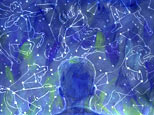 Since their American reissue in the 1970s, the Adventures of Tintin comic books have been dogged by the supposed racism and even downright Fascism of their pseudonymous author, Hergé. Relax, everyone: a documentary to be shown on PBS Tuesday explains that Roman Catholicism was the force behind Hergé’s controversial early comics—and his lifelong battle with overwork and guilt.
Since their American reissue in the 1970s, the Adventures of Tintin comic books have been dogged by the supposed racism and even downright Fascism of their pseudonymous author, Hergé. Relax, everyone: a documentary to be shown on PBS Tuesday explains that Roman Catholicism was the force behind Hergé’s controversial early comics—and his lifelong battle with overwork and guilt.
A son of a devout Belgian Catholic family, Georges Rémi (his initials in French, flipped and spelled out, appear as Hergé) was just 29 when he began to draw a strip in a church magazine called “Le Vingtiéme Siècle.” His first graphic novel, as it would be termed today, was an anti-Soviet screed that took the boy reporter, Tintin, to Moscow; another early work had Tintin hobnobbing with scandalously stereotyped Africans in “Tintin in Congo.” A casual meeting, however, with a Chinese artist led to Hergé’s transformation from a glib cartoonist to something closer to a journalist. Though he never left Brussels, over his next few books Hergé exposed the political struggles of China, then Palestine and Eastern Europe in ingeniously plotted books that are, for the most part, culturally and politically accurate. Eventually he lived down his Catholic editors’ early affection for Fascism, and his naivete in continuing to publish his serial after the Nazis had invaded Belgium and closed one and taken over another of his outlets to become a hero across Europe.
It took Rémi longer to overcome the effects of his severe Catholic upbringing. “Tintin and I,” a bio-documentary airing as part of PBS’s “POV” series on July 11, is the result of an extraordinary set of interviews conducted with Hergé in early 1970s by a young French reporter named Numa Sadoul. Rémi opened his heart to Sadoul, detailing his long oppression under the concept of sin and how the wish for purity–chiefly as snow–made its way into his books. Hergé’s personal drama is mixed with heavy doses of Tintinalia that will test even devout fans, but the picture the film draws of a man tortured even amid in wild success is a fascinating and somehow essentially 20th century tale.


